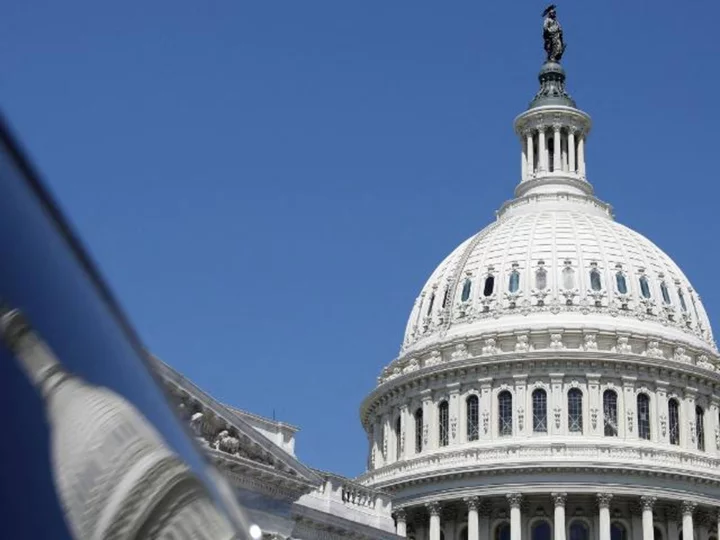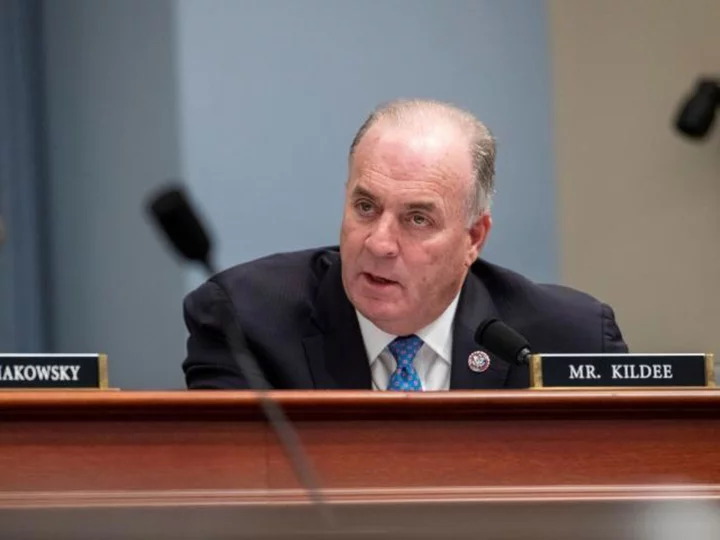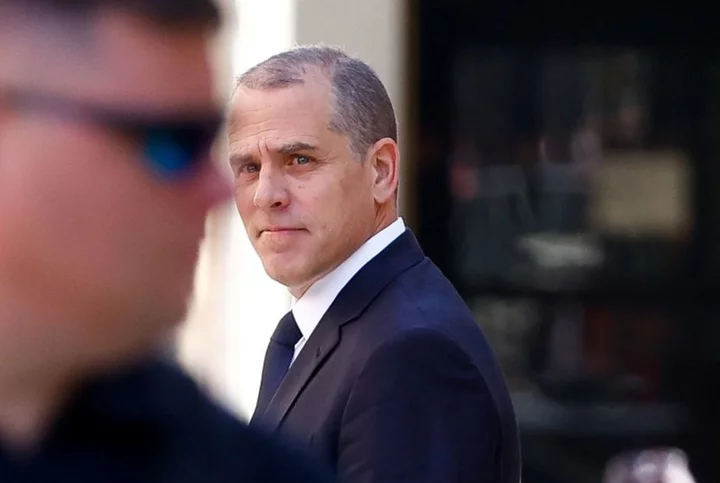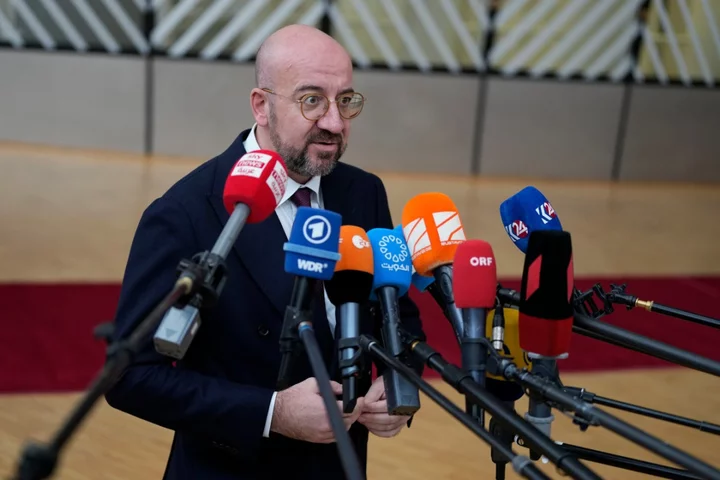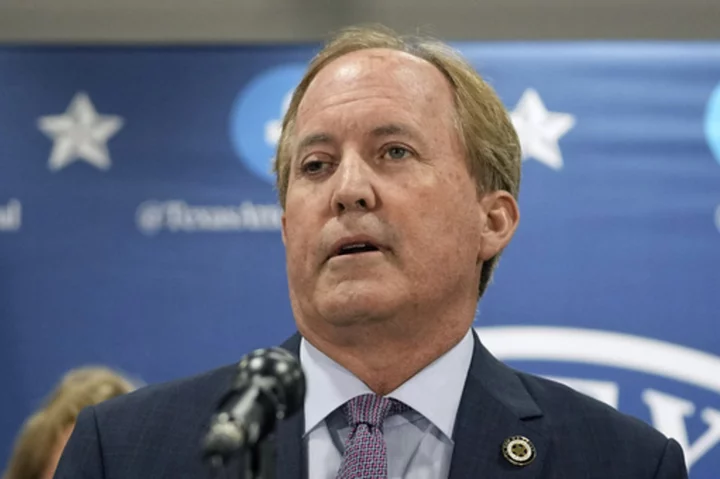GOP Sen. Mitt Romney thinks a government shutdown is "very likely," citing the House for his pessimism.
Senate GOP Whip John Thune says that House Republicans are going to have to show "some movement" in the impasse.
And Republican Sen. Shelley Moore Capito thinks the House GOP shouldn't have abandoned a bipartisan deal that Speaker Kevin McCarthy reached with the White House that was meant to make it easier to fund the government and avoid their current predicament.
"When you make a deal, I think you should stick to the deal," Capito told CNN.
As an end-of-the-month deadline to avoid a shutdown is rapidly approaching, tension in the GOP ranks is only rising.
Lawmakers have to navigate a whole host of major differences between the two chambers -- not just on overall spending levels, but also on critical policy issues. That includes whether to maintain the United States' investment to help Ukraine in its war against Russia, an issue that is strongly supported by top Senate Republicans and Democrats but has badly divided the House GOP.
Plus the differences between the two chambers go beyond Ukraine.
Under pressure from his right flank, which held the House hostage for about a week over the summer in protest over the debt ceiling law, McCarthy agreed to seek deeper cuts than outlined in that law, which was drafted in painstaking negotiations in his own office.
Now, the House and the Senate are about $153 billion apart in funding levels for the federal government for the fiscal year that starts October 1 -- a gulf that even Republican senators fear will be difficult, if not impossible, to bridge.
"It makes the appropriations process really challenging," Sen. Jerry Moran, a Kansas Republican and member of the Senate Appropriations Committee, said of the House backing away from the funding levels in the debt limit law, also known as the Fiscal Responsibility Act.
On top of all of that: Threats persist from McCarthy's right wing that if he agrees to funding levels higher than they'd like, they could seek to oust from his speakership. They would need just one member to call for a vote and five to vote against him, throwing the House into chaos.
But first Congress will have to approve a short-term spending bill to avoid a shutdown, but it's not even clear that will pass by the September 30 deadline.
Colorado Rep. Ken Buck, a member of the hard-right House Freedom Caucus, said Wednesday that many Republicans would rebel if McCarthy agreed to even a short-term extension of current funding levels, saying there need to be cuts imposed in the must-pass measure -- a position that is a non-starter with Democrats.
"I can't imagine that most (Republicans) are going to want to vote for a continuing resolution of a number that they voted against," Buck said on "The Lead with Jake Tapper," referring to the funding levels in last year's spending law that would be extended under a short-term bill. "So it puts the speaker as you said, between a rock and a hard place."
Texas GOP Rep. Chip Roy, who is demanding more border security measures in the short-term funding bill, dismissed concerns over the possibility of a government shutdown.
"Swamp dwellers hand-wringing over a possible shutdown for a week or two ... are the same lunatics who shut down your entire American economy, schools, & healthcare for over a year, leaving people to die alone," he posted on social media. "Spare me."
McCarthy has repeatedly defended his approach by saying that that the overall budget agreement set out the maximum amount of money to spend and that nothing should stop Congress from taking further steps to rein in sky-high deficits.
"You can always do less," he told reporters in the Capitol before the recess.
But the move to seek deeper cuts has only made it harder for McCarthy to get agreement within his own conference to advance spending bills.
Indeed, as House Republicans have struggled to pass partisan spending bills amid internal disagreements, the Senate is planning to bring a package of three bipartisan spending bills to the floor next week -- a stark contrast from the House, and a move that could give senators more leverage in the funding fight. The Senate bills, unlike the House, stick to the topline spending levels agreed to in the bipartisan debt ceiling deal.
"I know you constantly want me to comment on the House. But we are focused on our job," said Sen. Susan Collins of Maine, the top Republican on the Senate Appropriations Committee. "I am proud of the fact that in a bipartisan way, with seven of the bills passing unanimously, we got all of the bills, all 12 reported before the August recess for the first time in five years."
Texas GOP Sen. John Cornyn acknowledged that House and Senate Republicans aren't completely aligned on spending -- particularly on the issue of Ukraine aid, which could emerge as a major point of contention if it is tacked on to a short-term bill to fund the government.
"The challenge is going to be in the House," he said. "I know there's a strong core of support for Ukraine funding, certainly in the Senate."
Indeed, even trying to pass the short-term bill is filled with legislative landmines. A large number of senators in both parties are pushing hard to include $24 billion in aid to Ukraine and another $16 billion in funds for communities ravaged by natural disasters. But a sizable bloc of House Republicans wants to punt on Ukraine and only move on the disaster relief, a move that the White House opposes.
Rep. Kevin Hern, an Oklahoma Republican who chairs a conservative group known as the Republican Study Committee, said that the two issues -- disaster aid and Ukraine funding -- should be separate and called on the White House to detail why it needs such a massive package for a foreign war.
"The American people deserve to kind of know what our game plan is," Hern said. "Is it just to continue to send money to Ukraine, or is it to have some kind of resolve set forth?"
But Republican proponents of the Ukraine aid say that Russian President Vladimir Putin will win the war if the US relents, arguing it would lead to devastating consequences for the world.
"To these people who say it's not in our interest to support Ukraine, you're the same folks that criticized Biden for getting out of Afghanistan. You're right to do that," said Sen. Lindsey Graham, who traveled to Ukraine over the August recess. "Pulling the plug on Ukraine and letting Putin get away with this invasion will destabilize the world more than Afghanistan."
The GOP's divide on Ukraine is echoed by its party leaders. While McCarthy has repeatedly insisted on "no blank check" for Ukraine, Senate GOP Leader Mitch McConnell made an impassioned case -- both on the Senate floor and during a closed-door party lunch on Wednesday -- that they need to keep resources flowing to Ukraine at a critical time in its war with Russia.
"He's supportive of our involvement (in Ukraine). And he wants the rest of us to continue to support our involvement in Ukraine," said Sen. Todd Young, an Indiana Republican. "I do, and most Republicans do."
Louisiana GOP Sen. John Kennedy said he was supportive of both disaster aid and more Ukraine money, but has no qualms with the House GOP's hardline approach to the spending battle.
"I don't agree with everything that's said by my House colleagues, but they're right on the need to control spending and debt accumulation," he said. "The rubber's gonna meet the road when we get a conference committee."

